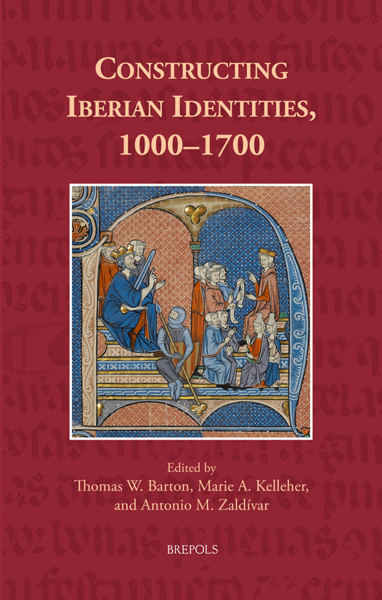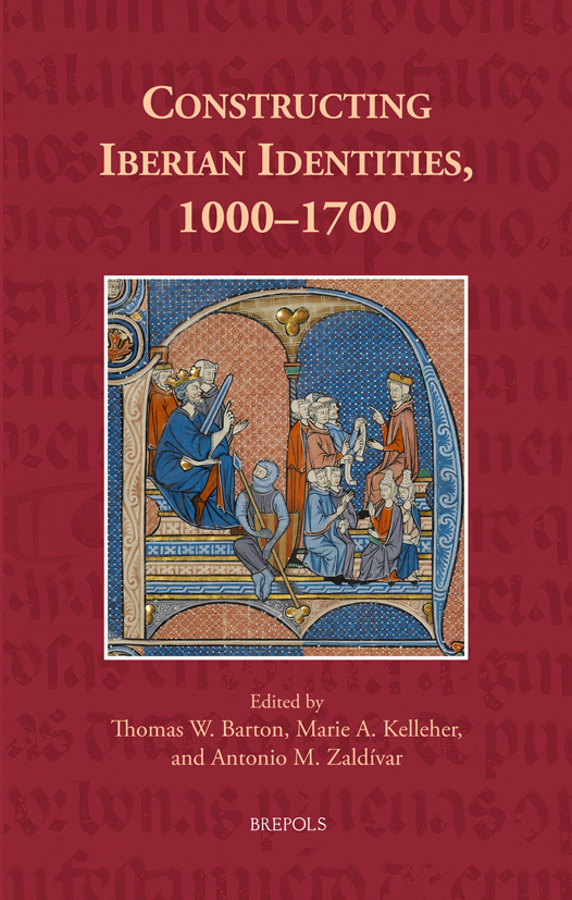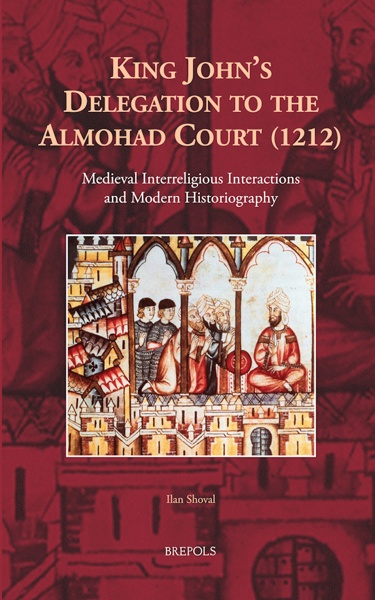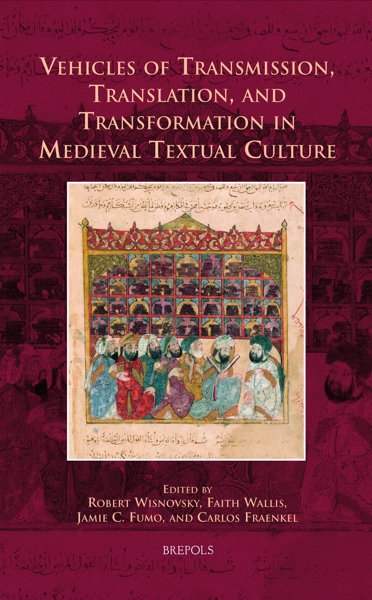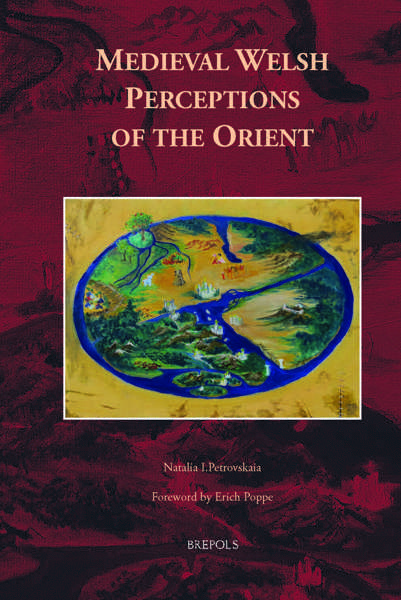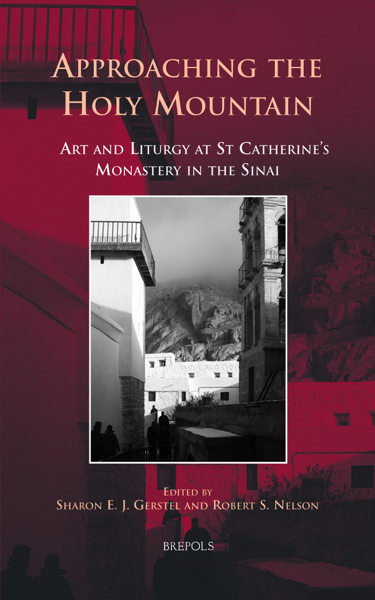
Constructing Iberian Identities, 1000-1700
Thomas Barton, Marie A. Kelleher, Antonio M. Zaldivar (eds)
- Pages: 244 p.
- Size:156 x 234 mm
- Illustrations:4 col.
- Language(s):English
- Publication Year:2022
- € 80,00 EXCL. VAT RETAIL PRICE
- ISBN: 978-2-503-59630-3
- Hardback
- Available
- € 80,00 EXCL. VAT RETAIL PRICE
- ISBN: 978-2-503-59631-0
- E-book
- Available
This volume brings together twelve essays from an international collection of scholars that collectively explore the formation and expression of individual and collective identities within pre-modern Iberian context.
- Iberian Peninsula (c. 500-1500)
- Communities, social groups and social relations
- Customs, traditions & identities
- Social history (c. 500-1500)
- Cultural & intellectual history (c. 500-1500)
- Religious history (c. 500-1500)
- General Mediterranean, incl North Africa & Middle East (c. 500-1500)
- Iberian Peninsula (c. 1501-1800)
“The volume concludes with Teofilo F. Ruiz’s “Afterword” (227-230), which emphasizes the quality and breadth of the contributions. This collection will undoubtedly be of interest to many scholars as it showcases a diversity of perspectives and methodological approaches for the study of Iberia (and particularly, the Crown of Castile) and its connections with the Mediterranean and the Atlantic over the course of the Middle Ages and the Early Modern period, demonstrating the importance of adopting global and comparative perspectives for the study of pre-Modern history.” (Núria Silleras-Fernández, in The Medieval Review, 11/04/2024)
“Readers will likely find themselves wanting more at the end of each chapter, making Constructing Iberian Identities, 1000–1700 an absorbing and inspirational addition to the burgeoning field of Iberian identity studies.” (Laura Delbrugge, in Bulletin of Spanish Studies, C/8, 2023, p. 1284)
"Questioning what kind of identity people had during the Middle Ages is of great relevance for all medievalists and other cultural historians. The same applies to the Iberian Peninsula, which was deeply determined by the often not conflict-free cohabitation of Jews, Muslims, and Christians (convivencia). The contributors to the present volume, endeavor to approach this broad topic from a variety of perspectives, focusing on four major issues within that context: urban communities, ethno-religious self-fashioning, writing history and political authority, and mobility and encounter." (Albrecht Classen, in Mediaevistik, 36(1), 2023, p. 295)
Thomas Barton, Assoc. Prof., History, University of San Diego
Marie Kelleher, Prof., History, California State University Long Beach
Antonio M. Zaldívar, Asst. Prof., History, California State University San Marcos
Over the past several decades, scholars of medieval and early modern Iberia have transformed the study of the region into one of the most vibrant areas of research today. This volume brings together twelve essays from a diverse group of international historians who explore the formation of the multiple and overlapping identities, both individual and collective, that made up the Iberian peninsula during the eleventh through seventeenth centuries. Individually, the contributions in this volume engage with the notion of identity in varied ways, including the formation of collective identities at the level of the late medieval city, the use of writing and political discourse to construct or promote common political or socio-cultural identities, the role of encounters with states and cultures beyond the peninsula in identity formation, and the ongoing debates surrounding the peninsula’s characteristic ethno-religious pluralism.Collectively, these essays challenge the traditional dividing line between the medieval and early modern periods, providing a broader framework for approaching Iberia’s fragmented yet interconnected internal dynamics while simultaneously reflecting on the implications of Iberia’s positioning within the broader Mediterranean and Atlantic worlds.
Constructing Iberian Identities, 1000–1700: Introduction — Thomas W. Barton, Marie A. Kelleher, and Antonio M. Zaldívar
Urban Communities
Landscapes of Salvation, Landscapes of Power: Jews, Christians, and Urban Space in Fourteenth- Century Seville — Maya Soifer Irish
From the Mediterranean to the Atlantic: The Role of the Town- Ports of Northern Iberia in the First Internationalization of the European Economy in the Middle Ages — Jesús Ángel Solórzano Telechea
The Fiscal Dialogue at the Castilian Cortes of Madrigal of 1438-55 — Denis Menjot
Ethno- Religious Self- Fashionings
Ruling Between and Across the Lines: Liminal Identities and Political Legitimacy in al-Andalus — Travis Bruce
The Medieval/Early Modern Divide along the Franco- Spanish Border — Francesca Trivellato
The Declinacion of the Hidden One: Encubertismo during the Reigns of the Later Spanish Habsburgs — Bryan Givens
Writing, History, and Political Authority
Reconsidering the Shift from Latin to Romance in the Castilian Chancery: A Historiographic Review — Antonio M. Zaldívar
History Writing in Spain from Humanism to Counter- Reformation: On Deeds, Books, and Truth —Xavier Gil
‘Above all, to thine own self be true’: Pedro de Valencia, Self- Censorship, and the (Unwritten) History of Chile — Richard L. Kagan
Mobility and Encounter
Medieval Encounters Between Iberia, the Mediterranean, and Asia Myths and Realities — Francisco García- Serrano
Intertwining Granada and North Africa: New Evidence on Diplomatic Contacts, Naval Power, Mobility, and Family Ties in the Late Medieval Western Islamic Mediterranean — Roser Salicrú i Lluch
An Infanta Travels: Catalina of Aragon, 1485–1501 — Theresa Earenfight
Afterword — Teofilo F. Ruiz
***
Index
